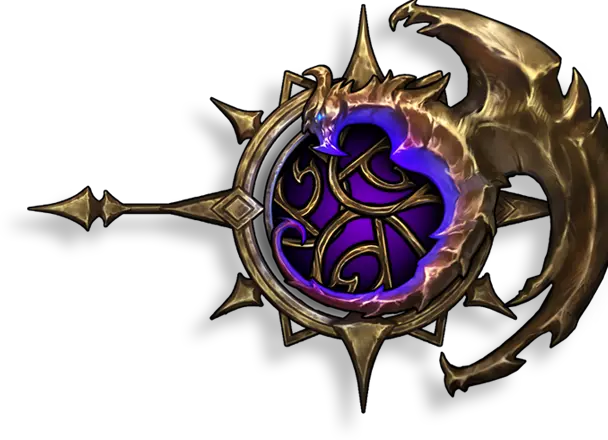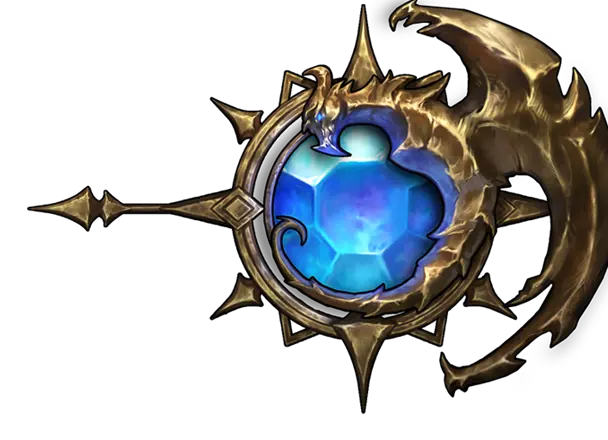Embark on Epic Online Card Game Quests: Unleash Your Strategic Prowess
Exploring Online Card Games
Evolution of Digital Card Games
The world of online card games has seen a remarkable evolution over the years. Starting from simple digital renditions of classic card games, we’ve progressed to highly sophisticated Digital Collectible Card Games (DCCGs) like Hearthstone and Magic: The Gathering Arena. These games offer dynamic and immersive experiences through engaging gameplay and continuous updates, showcasing the potential of digital card games (Journal Of Happiness).
The introduction of mobile gaming has further revolutionised the digital card game landscape. Titles like Gwent and Legends of Runeterra provide the convenience of playing anywhere, anytime, contributing to their surge in popularity (Medium). These games combine strategic gameplay with stunning graphics and sound effects, setting new standards for digital card games.
Impact of Esports
Esports has significantly influenced the online card gaming industry. It has attracted large audiences and created new opportunities for both players and developers. Games like Hearthstone and Magic: The Gathering Arena have become staples in the esports arena, drawing competitive players and enthusiastic viewers alike (Journal Of Happiness).
The competitive nature of esports has also led to the development of more strategic and analytical gameplay. This, in turn, has attracted a generation of strategic, creative, and competitive players who thrive on outsmarting their opponents. Esports tournaments offer substantial rewards, further fuelling the competitive spirit and engagement within the community.
| Game Title | Esports Impact | Player Engagement |
|---|---|---|
| Hearthstone | High | Very High |
| Magic: The Gathering Arena | High | Very High |
| Legends of Runeterra | Moderate | High |
| Gwent | Moderate | High |
The social aspect of online card games has room for improvement, as noted by Michael McCune. Enhancing social interactions within the game could elevate the overall experience, transforming it from a series of clean mechanics into a more vibrant and engaging community (Michael McCune).
Innovations in Online Card Gaming
Blockchain Technology
In the world of online card gaming, blockchain technology is a game-changer. It enables actual ownership of digital cards, allowing players to buy, sell, and trade their cards on decentralised marketplaces. This gives us complete control over our collections (Journal Of Happiness). Blockchain ensures provable scarcity and rarity of digital cards, which appeals to collectors and investors and drives demand for rare and valuable cards.
| Feature | Benefit |
|---|---|
| Ownership | Full control over digital cards |
| Trading | Buy, sell, and trade on decentralised marketplaces |
| Scarcity | Provable rarity increasing card value |
This technology also introduces Non-Fungible Tokens (NFTs) into the gaming industry, creating unique and tradable digital cards that provide a new level of ownership and value for players (Medium).
Artificial Intelligence Integration
Artificial Intelligence (AI) and Machine Learning (ML) are revolutionising the online card gaming industry. They play pivotal roles in enhancing various aspects of the gaming experience, from gameplay to customer support (Journal Of Happiness). AI and ML enable the creation of smarter, more adaptive opponents, enhancing the solo gaming experience.
| Feature | Benefit |
|---|---|
| Adaptive Opponents | More challenging solo gameplay |
| Enhanced Support | Improved customer support with AI |
| Gameplay Experience | Smarter and more engaging interactions |
These innovations in AI and ML are transforming how we engage with online card games, making them more dynamic and personalised. By integrating AI, game developers can offer us more tailored experiences, keeping us engaged and entertained.
Popular Online Card Games
Let’s dive into some of the most captivating online card games that have taken the gaming world by storm. These games offer unique mechanics, engaging storylines, and strategic depth, making them favourites among players.
Legends of Runeterra
Legends of Runeterra is a standout CCG created by Riot Games. It offers a unique blend of strategy and tactics, where players receive a mana gem and an attack or defence token at the start of their turn. The game allows players to build decks with champions and spells from the popular League of Legends universe, providing a familiar yet innovative experience.
| Feature | Description |
|---|---|
| Developer | Riot Games |
| Main Mechanics | Mana management, Champion abilities |
| Game Universe | League of Legends |
| Audience | Strategic, competitive players |
Mythgard
Mythgard is a steampunk-fantasy CCG with an engaging storyline. Players can practise in the normal game mode before challenging others, ensuring a smooth progression. The game blends traditional card game mechanics with a rich narrative, making it a favourite for those who enjoy immersive storytelling.
| Feature | Description |
|---|---|
| Developer | Rhino Games |
| Main Mechanics | Steampunk-fantasy elements, Story-driven gameplay |
| Game Universe | Mythgard |
| Audience | Narrative-focused, tactical players |
Cultist Simulator
Cultist Simulator is an award-winning CCG where players navigate daily life while avoiding being drawn into a cult. The game offers a tactical and strategic experience, with players needing to manage resources and make critical decisions to survive.
| Feature | Description |
|---|---|
| Developer | Weather Factory |
| Main Mechanics | Resource management, Tactical gameplay |
| Game Universe | Cultist Simulator |
| Audience | Tactical, decision-making players |
The Elder Scrolls: Legends
The Elder Scrolls: Legends is a free CCG that incorporates elements from the Elder Scrolls franchise. Players use spells and manage Health and Magicka to defeat their opponents. The game blends familiar Elder Scrolls lore with strategic card gameplay, appealing to fans of the series and new players alike.
| Feature | Description |
|---|---|
| Developer | Dire Wolf Digital |
| Main Mechanics | Health and Magicka management, Spell casting |
| Game Universe | Elder Scrolls |
| Audience | Franchise fans, strategic players |
Slay The Spire
Slay The Spire combines roguelike elements with card gameplay. Players choose characters and build decks to climb to the top of the spire. The game offers a challenging yet rewarding experience, suitable for both beginners and seasoned CCG players.
| Feature | Description |
|---|---|
| Developer | MegaCrit |
| Main Mechanics | Deck-building, Roguelike elements |
| Game Universe | Slay The Spire |
| Audience | Beginners, experienced strategists |
These games showcase the diversity and innovation within the online card game genre. Each offers a unique experience, catering to different playstyles and preferences. Whether you’re a strategic mastermind or a tactical genius, there’s an online card game quest waiting for you.
Strategies for Player Engagement
To keep our strategic, creative, competitive, and analytical players engaged in online card games, we need to employ a variety of tactics. Here are some strategies that can help in boosting player engagement.
Personalized Engagement Tactics
Personalization is key to keeping players engaged and satisfied. By leveraging tools like CleverTap’s segmentation capabilities, we can tailor experiences based on individual preferences, in-game behaviour, and demographics (CleverTap Blog). This approach ensures that each player receives a unique and engaging experience.
| Personalization Strategy | Description |
|---|---|
| Segmentation | Tailoring experiences based on player data |
| In-game Behaviour Tracking | Customizing content based on actions within the game |
| Demographic Targeting | Offering rewards and content that resonate with specific player groups |
Gamification Elements
Incorporating gamification elements beyond the core gameplay can significantly enhance player engagement. This includes features such as periodic quests with escalating difficulty levels, loyalty programs, and achievement systems.
| Gamification Element | Purpose |
|---|---|
| Periodic Quests | Provide continuous challenges and rewards |
| Loyalty Programs | Motivate players to return and engage regularly |
| Achievement Systems | Encourage players to accomplish specific goals |
Community Building Features
Building a strong community around our online card game can lead to increased player loyalty and engagement. Features like social media sharing, chat rooms, and in-game events encourage players to interact and compete with their peers (CleverTap Blog). Additionally, guild-like community structures allow players to form organizations and access tools for community management (Michael McCune).
| Community Feature | Benefit |
|---|---|
| Social Media Sharing | Facilitates player interaction and game promotion |
| Chat Rooms | Enhances real-time communication among players |
| In-game Events | Encourages participation and competition |
| Guild Structures | Fosters a sense of belonging and teamwork |
| Voice Chat | Improves communication and social interaction |
By implementing these strategies, we can create a more engaging and immersive experience for our players, ensuring they remain invested and excited about our online card games.
Retaining Players in Online Card Games
Retaining players in online card games is a multifaceted challenge that requires a blend of strategy, technology, and community-building efforts. To keep our strategic, creative, competitive, and analytical Generation Y players engaged, we need to address several key areas.
Challenges in Player Retention
Player retention is a critical issue in the online card game industry. Only 4% of the top 25% of games are retained beyond the first 28 days, which highlights the difficulty of maintaining a stable player base. High churn rates can lead to revenue loss, a decline in in-app purchases, and a diminishing player base. The primary challenges include:
- High competition from other games
- Lack of continuous engagement and content updates
- Poor user experience and technical issues
- Inadequate community support and interaction
Personalized Engagement Strategies
Personalized engagement is key to retaining players. By tailoring experiences based on individual preferences, in-game behaviour, and demographics, we can significantly boost engagement. Some effective strategies include:
- Segmentation: Using tools like CleverTap’s segmentation capabilities to create customised user experiences (CleverTap Blog).
- Targeted Campaigns: Sending personalised messages and offers to players based on their activity and preferences.
- Dynamic Content: Updating game content regularly to keep it fresh and exciting for players.
| Strategy | Benefit |
|---|---|
| Segmentation | Customised experiences |
| Targeted Campaigns | Higher engagement |
| Dynamic Content | Keeps game fresh |
Leveraging LiveOps for Success
LiveOps (Live Operations) is crucial for the long-term success of online card games. By utilising real-time monitoring and updates, we can ensure a seamless and engaging experience for our players. CleverTap’s LiveOps suite offers several benefits:
- Real-time Monitoring: Tracking player behaviour to identify issues and opportunities.
- Personalised Campaigns: Creating targeted campaigns based on real-time data.
- Churn Risk Identification: Identifying players who are at risk of leaving and engaging them with tailored offers.
- Issue Resolution: Quickly addressing technical issues to maintain a positive user experience.
| LiveOps Feature | Advantage |
|---|---|
| Real-time Monitoring | Identifies issues promptly |
| Personalised Campaigns | Increases player engagement |
| Churn Risk Identification | Prevents player loss |
| Issue Resolution | Maintains positive experience |
Retaining players in online card games requires a combination of personalised engagement strategies and effective use of LiveOps. By addressing the challenges of retention and leveraging technology, we can create a compelling and engaging experience that keeps our players coming back for more.
Quests in Online Card Games
Quests in online card games add an extra layer of strategy and engagement, making the gameplay more exciting and rewarding. Let’s dive into the purpose and rewards of quests, how they are implemented in different games, and the mechanics behind quest cards.
Purpose and Rewards
Quests serve multiple purposes in online card games. They keep players engaged, provide clear objectives, and offer rewards that enhance the gaming experience. Rewards can range from in-game currency and rare cards to unique abilities and power-ups.
| Game | Purpose of Quests | Typical Rewards |
|---|---|---|
| Magic the Gathering | Enhance strategic depth | Strong game effects |
| Hearthstone | Provide early-game objectives | Conditional rewards |
| Carnival of Monsters | Set collective and individual goals | In-game points, hidden achievements |
| Gloomhaven | Secret individual objectives | Character sheet upgrades |
| Runeterra | Hero card evolution | New abilities, stronger versions |
Implementation in Different Games
Different games implement quests in unique ways to fit their gameplay mechanics and enhance player engagement.
Magic the Gathering: Quest cards, introduced in the Zendikar expansion, act as enchantments that accumulate quest counters when specific events occur. Once enough counters are collected, players receive powerful game effects. (Nerdlab Games)
Hearthstone: Quests are automatically included in the player’s starting hand and are visible to the opponent. Once the quest conditions are met, players receive a conditional reward. (Nerdlab Games)
Carnival of Monsters: The game features season goal cards and secret goals. Season goals are visible to all players, while secret goals are hidden and only achievable by the card owner. (Nerdlab Games)
Gloomhaven: Each player receives a hidden battle goal at the start of a scenario. These goals are secret from other players, and completing them allows players to upgrade their combat modifier deck. (Nerdlab Games)
Runeterra: Instead of specific quest cards, each hero card comes with a built-in quest. Meeting the quest requirements flips the hero card to a stronger version with a new ability, shaping the core strategy of the game. (Nerdlab Games)
Quest Cards Mechanics
The mechanics of quest cards vary between games, but they generally follow a few key principles:
- Activation: Quests are activated based on specific in-game events or conditions.
- Progression: Players track their progress through counters or other markers.
- Completion: Once the quest conditions are met, players receive a reward.
For example, in Magic the Gathering, quest cards gain quest counters when certain conditions are fulfilled. Once enough counters are accumulated, the player gains a powerful effect. In Hearthstone, quests are completed by meeting specific conditions, granting a reward that can turn the tide of the game.
Understanding these mechanics can help players strategically plan their moves and maximise their rewards, leading to a more engaging and dynamic gameplay experience.
By integrating quests into online card games, developers create a richer, more immersive experience that keeps players coming back for more.
Dive into Legends of Elysium (LOE), a FREE-to-play strategy game that combines the excitement of collectible cards with the depth of board games. Conquer a vibrant fantasy world with unique races, customizable heroes, and endless strategic choices.
Created by DA Games, LOE features:
- Eye-catching visuals that bring Elysium to life ✨
- Competitive multiplayer leagues to showcase your skills ⚔️
- Intense battlefield challenges and eSports tournaments
- Play-and-earn mechanics to profit from your passion
Join the legendary ranks today!
[CTA_BUTTON_PLAY]







